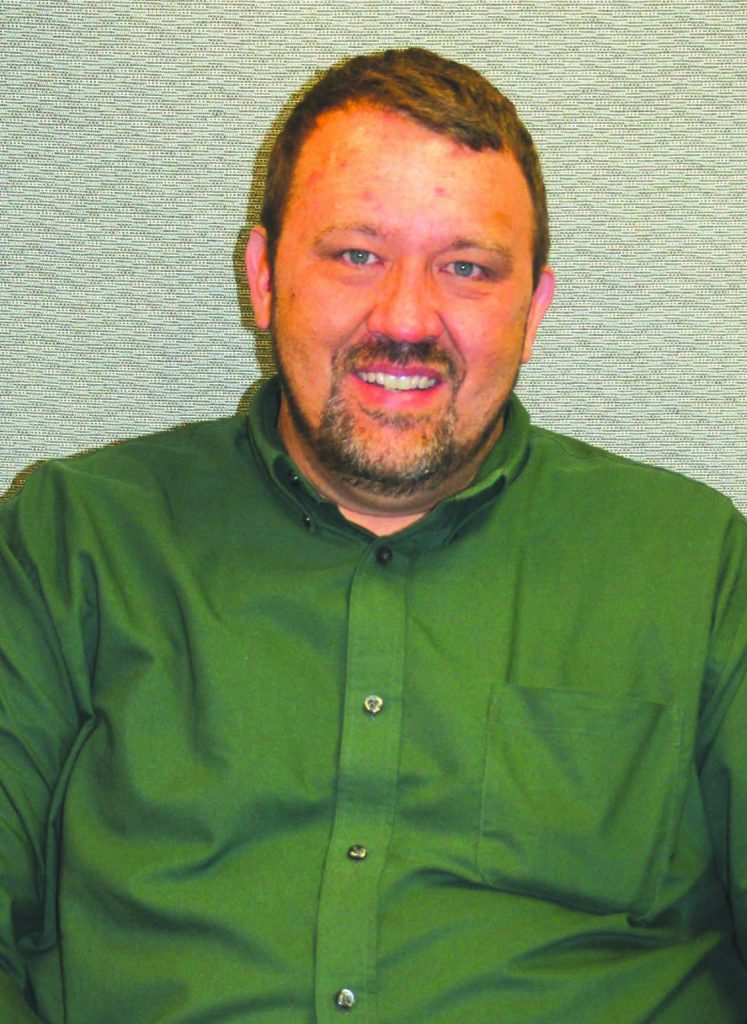Psychologically breaking the status quo
College is hard. There are rough decisions to make and the choices made will affect every day through the rest of life. Even simple stresses can create a lot of pain. But no one needs to be alone on difficult days. Darrin Brandt is ready to help.

This archived article was written by: Ashley Stilson
College is hard. There are rough decisions to make and the choices made will affect every day through the rest of life. Even simple stresses can create a lot of pain. But no one needs to be alone on difficult days. Darrin Brandt is ready to help.
Brandt was named USU Eastern’s director in the counseling and disability resource center and believes in focusing on strengths, not only on weaknesses. “For the history of psychology, we’ve been focused mainly on fixing things that are broken in us…why is it that we don’t focus on how better to excel? How to identify our strengths, how to better use those strengths, as opposed to always looking at the negatives.”
Brandt was born and raised in Southern California. He moved to Utah 20 years ago with his wife to find a better community to raise their children. He began working in human resources after studying at Utah Valley University, but went back to school to major in something he loves: social work.
Brandt completed his master’s degree through the University of Utah and began working at Four Corners Community Behavioral Health. For six years he worked with people who had depression, anxiety, trauma, substance dependence, mental health, or were severely mentally ill.
“I think that it’s fascinating, how the human mind works,” Brandt says. “How we intake information, how we process the information, how life experiences affect us in our goals and our desires and how we [as psychologists] might intervene to help people who are caught up in issues that keep them frozen in time and progressing through life.”
Some of the most common problems Brandt sees throughout campus are anxiety, depression and confusion of decision making. He believes that human beings are not meant to be alone. “If there’s stress, join clubs,” Brandt advises. “Reach out to friends that you have. Work to gain new friends.” Sometimes people feel like victims of their emotions and there isn’t anything to do about it. But he disagrees, “There’s quite a lot that we can do to positively affect our emotional state and be able to get through our difficult times.”
Brandt’s favorite way to counsel is to sit down in an individual session. “Having a person open up in a way that I know that when they’re talking to me that they’re opening up to me maybe for the first time about something that is really wearing them down…I see that relief in their face that they’re still acceptable, that they’re still good and there’s hope.”
Psychology has developed throughout the years, and Brandt would like to help the student body have a better understanding of how it can help them in their lives. He wants students to know that there is no stigma that’s following them if they come to the counseling office. He has an enthusiasm to help people avoid the pitfalls of substance dependence.
“People with…substance dependence issues that have come to a place where they feel like they can’t progress any more,” Brandt continues. “[They come] to understand that there’s a profession that could help people heal from that kind of pain…to understand that even though trauma was experienced doesn’t mean that that’s the story of [their] lives.”
He is also over the Disability Resource Center (DRC) and remembers having his own disabilities to work with. Brandt borrowed audio textbooks to help his reading disability. Unfortunately, it’s difficult to face weakness and admit to help. “We find there’s only a small minority of [students] with disabilities that come and gauge with us and get the help to level the playing field for them.” He says, “If there’s a learning disability, it doesn’t mean that we’re dumb. It doesn’t mean that we’re not intelligent. It’s just that we learn differently.”
Brandt comments on test anxiety, saying when people are stressed, their minds start racing, thinking about scores of previous tests or other negative thoughts. “The natural law of psychology is that the things we think about will determine how we feel. If your mind is racing with all these negative thoughts, it will affect our emotions.” He says there are many different skills and ways to help keep our minds from racing as much.
“We want to help students be successful,” Brandt finishes. “We want to be able to take the stumbling blocks out of the way so that they can see their dreams come true. I learned a long time ago that if you want to destroy a person, you take their dreams away from them.
“If you have a campus full of people that are enthusiastic about life, that have great goals, that want to contribute to this world, I think it’s my job that those dreams aren’t taken away from them.”
The counseling office is open Monday through Friday from 8 a.m.-5 p.m. Students have eight free appointments per semester. But if it’s a crisis, Brandt says, call anytime. The crisis hotline is available 24/7 for emergencies.




